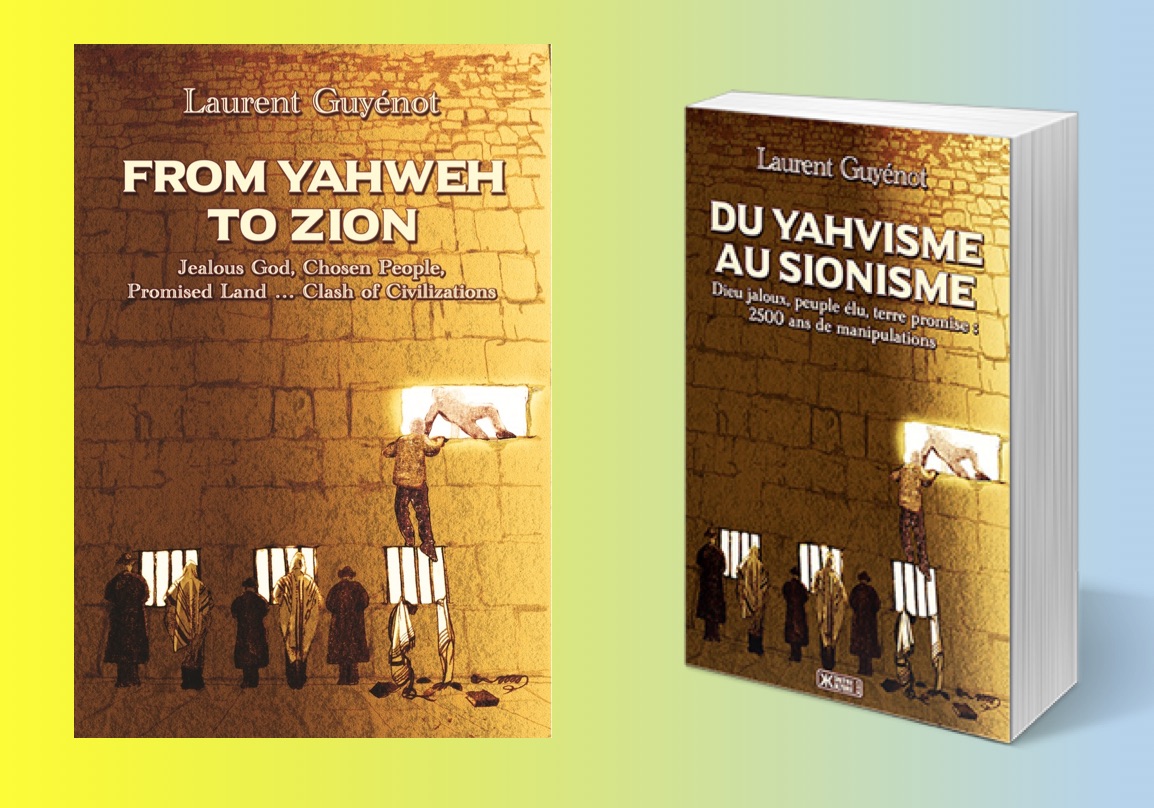
Listen HERE.
Laurent Guyenot’s From Yahweh to Zion may be the best book ever written on what used to be called “the Jewish question.” In this interview Dr. Guyenot explains how his study of the Deep State, specifically its role in 9/11 and the assassinations of the Kennedy brothers, led him to a historical re-examination of Judaism and Jewish identity politics. From Yahweh to Zion raises many “Jewish questions” including:
Is Judaism/Jewishness a religion or an ethnicity? What is the Jews’ relationship to God, and to Jesus and the prophets? What accounts for the Jews’ ability to maintain tribal cohesion over more than 2500 years? Why have Jewish communities so often been at odds with their non-Jewish neighbors? Why have Jews been over-represented—in many non-Jewish societies throughout history—in positions of wealth and power? Why does this over-representation seem to be increasing today? Why is this issue off-limits for discussion in polite company (including the mainstream media and the academy)? Is Jewish tribal cohesion an important factor in the Deep State? And what role does the creation and endless expansion of Israel play in all of this?
The eminent theologian John Cobb writes of From Yahweh to Zion: “This is a remarkable book in many ways.”
Dr. Cobb explains: “There is no question of the extraordinary gifts and achievements of the Jewish people and of their enormous contribution to American culture and intellectual life. Also, we all know that Zionists play a large role in United States in the media, in finance, and in international policy. In addition we know that there is rather tight censorship with respect to what may be said about these matters without ad hominen response. The fact of Gentile crimes against Jews throughout history is used to justify this censorship, much, but not all, of which is self-imposed. In my view, through their role in this censorship, Jews are paving the way for the rise of anti-Jewish feeling and perhaps much worse.
“This book may be simply dismissed as anti-Jewish, but it would be far better to engage it in a scholarly, rather than an ad hominem, way. Instead of discouraging scholars from considering the evidence of Jewish crimes, I wish that Jewish scholars would support freedom of inquiry and explain their reasons for disagreeing in open discussion. Otherwise those of us who seek uncensored truth may be misled by errors and exaggerations in what is usually hidden from us and is presented only at the margins of our society.
“Much in this book is offensive to Christians and Muslims as well as to Jews. As a Christian, however, I find the offense to be a stimulus to fresh thinking and repentance. What is selected to be said about us is certainly not the inclusive truth. But it has its truth, and the truth it has should not be neglected.” John B. Cobb, Jr.